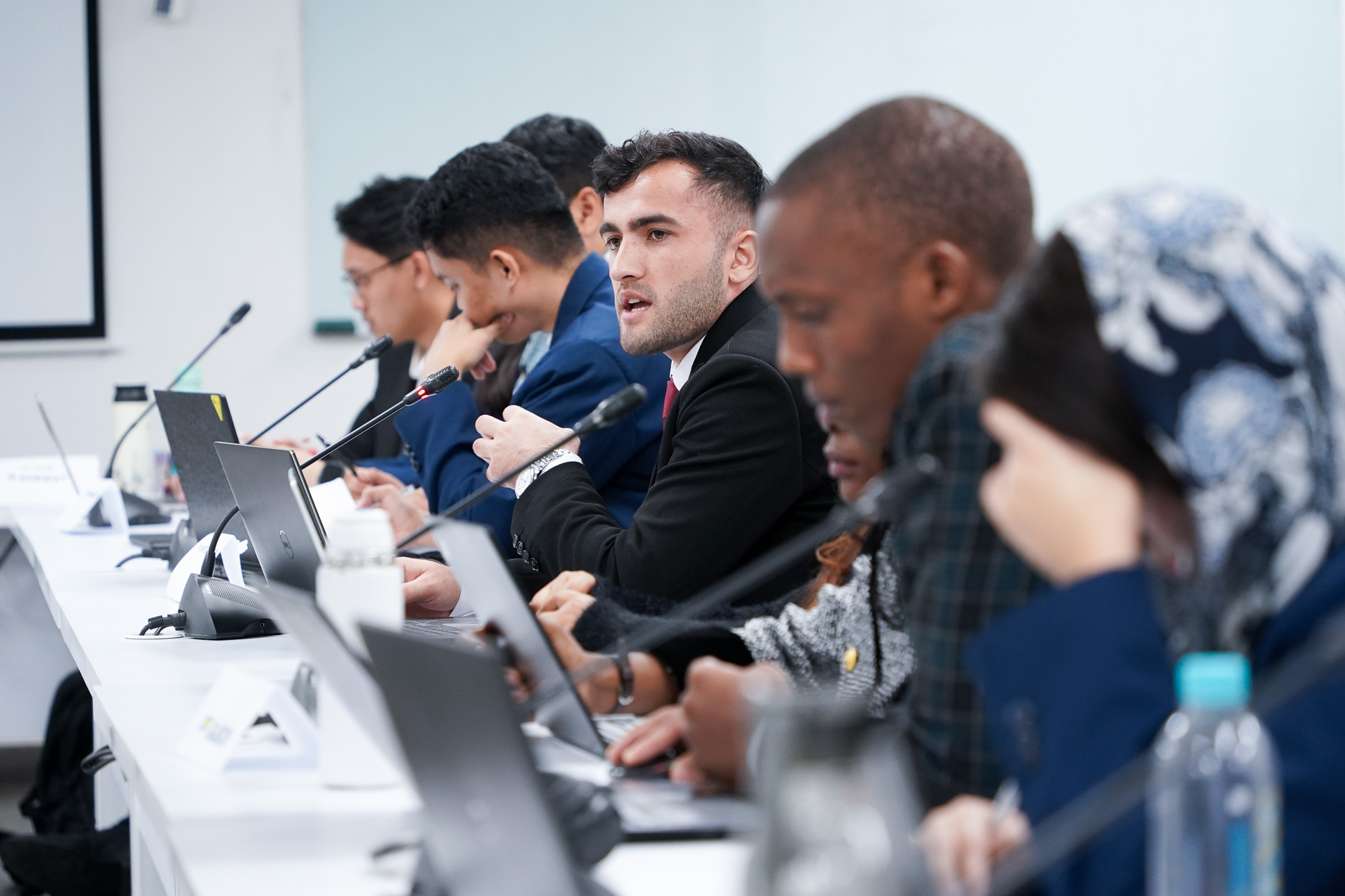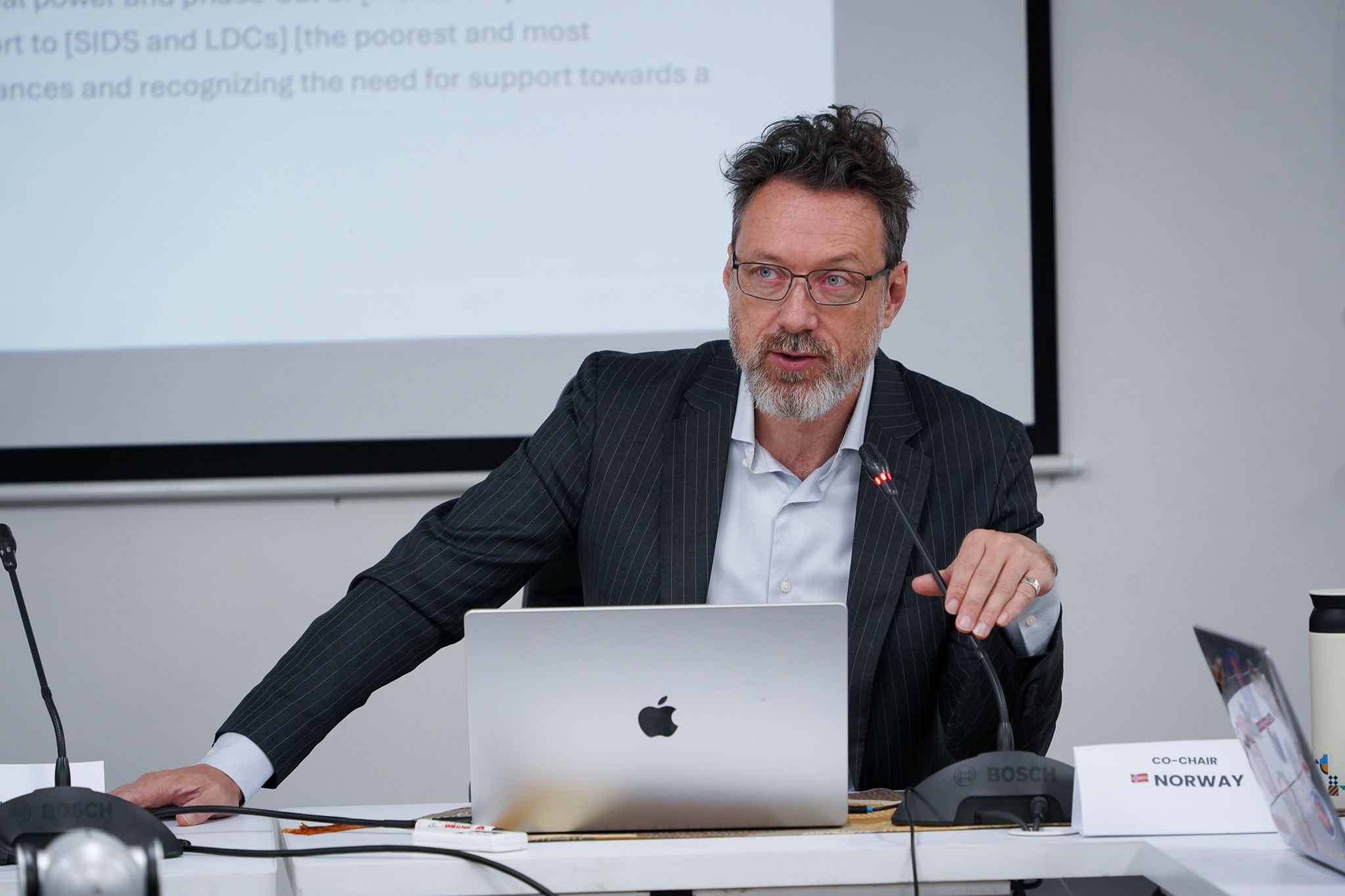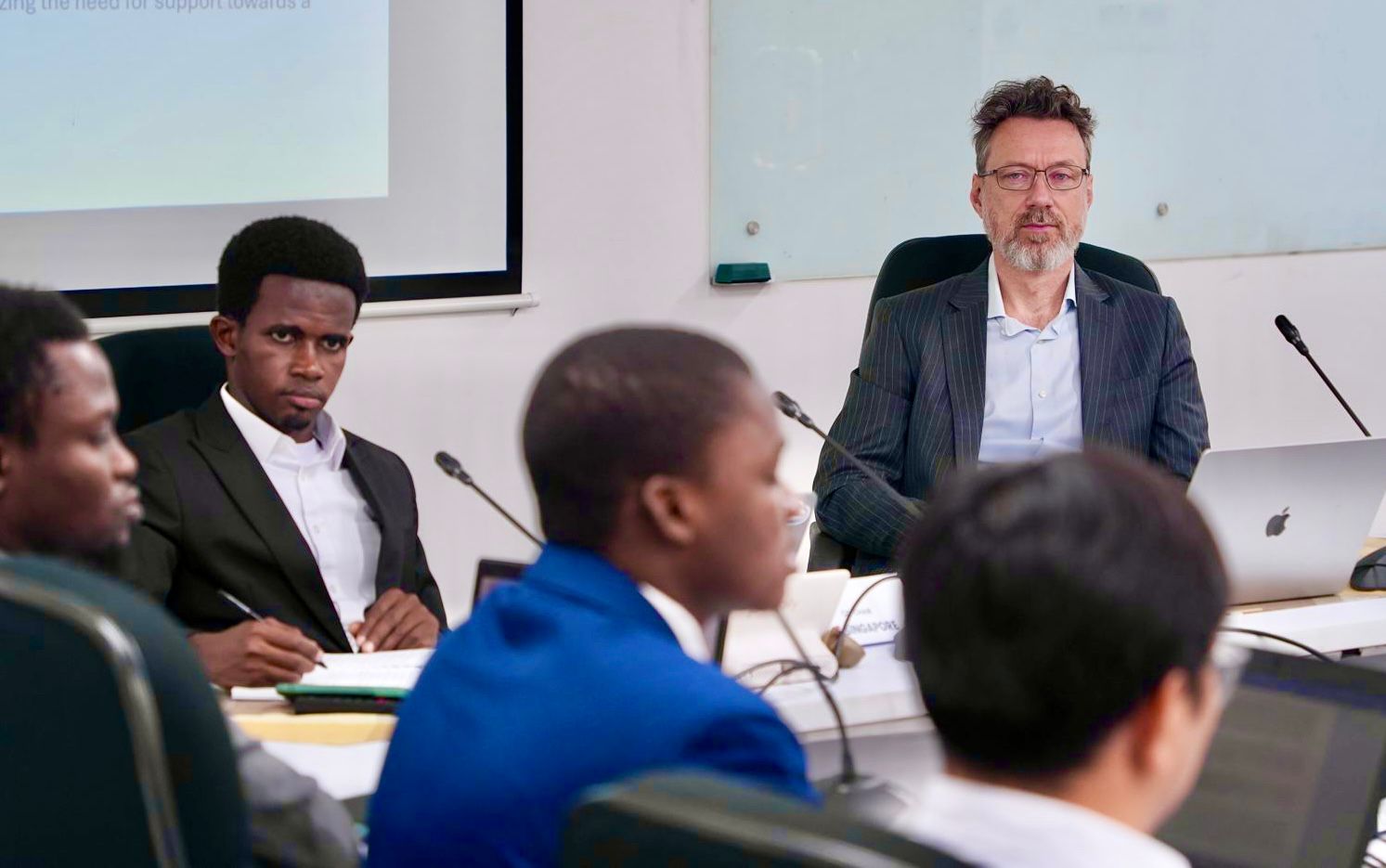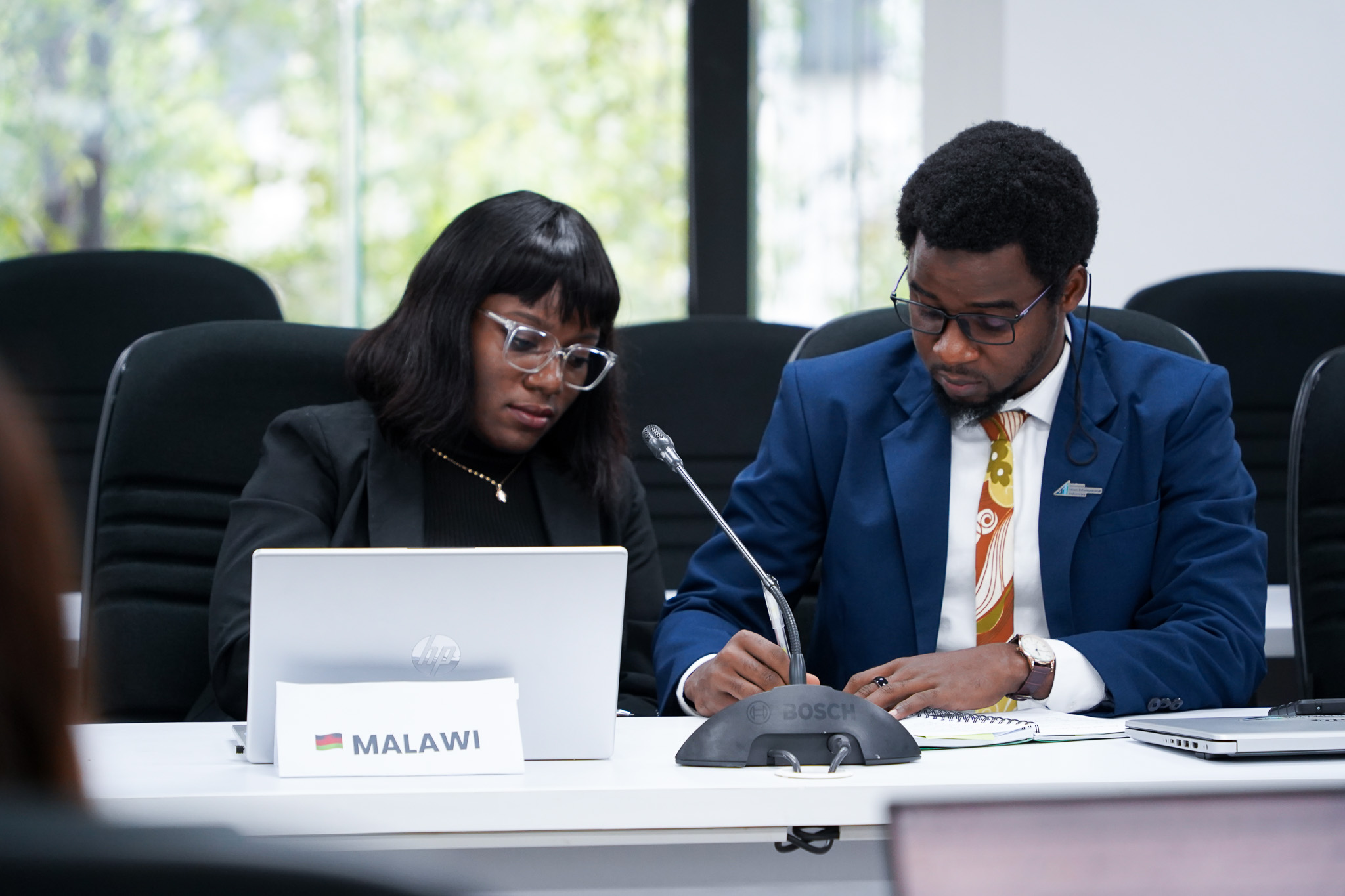June 23, 2025
Contributor: Supriyono | Editor: Dadi Darmadi | Photo: Achmad Jatnika

As an innovative approach to train skilled future climate negotiators, Prof. Michiel Schaeffer, Adjunct Professor of Climate Change Public Policy at UIII’s Faculty of Social Sciences (FOSS) recently initiated a climate negotiations simulation as part of the Master of Public Policy program. Held at the Teleconference Room of Faculty A on June 19, 2025, this initiative aimed to train future policymakers in climate diplomacy, putting theory into practice and allowing students to experience the complexities of international negotiations first-hand.
“As part of our MPP program focusing on climate change and the Global South, we’ve been teaching risk management and how to use scientific data to frame policies that limit greenhouse gas emissions and protect vulnerable communities,” Prof. Schaeffer explained. “But knowing the theory is one thing — applying it in negotiations is another. Climate change is a global problem that demands collaboration, and collaboration requires negotiation. This exercise gives students a feel for how challenging that can be.”

During the simulation, students acted as delegates representing different countries and blocs, grappling with the tensions and trade-offs that dominate global climate talks. The goal was to deepen their understanding of how policies, national interests, and the urgency of climate action must be balanced in practice.
For students like Noor Ul Ain, an MPP student from Pakistan representing Iraq, the experience was eye-opening. “It was a great learning experience,” she said. “Acting as a delegate made me realize how difficult it is for 194 countries to agree on a common agenda when each has its own priorities. It emphasized the importance of teamwork, diplomacy, and clear communication in making global climate decisions.”

Hassan Barrie, an MPP student from Sierra Leone who served as the core chair representing Singapore, reflected on the value of the simulation. “We’ve been studying climate negotiations in theory throughout the year, and this exercise gave us a chance to put that knowledge into practice. It opened my eyes to the deep connections between climate diplomacy and the lived realities of people in vulnerable communities. Climate action is not just about policies and statistics — it’s about people, justice, and survival,” he said.
He also highlighted the vital role young people can play in addressing climate change. “Youth are not just the future, we are also the present. Our energy, innovation, and urgency must be acknowledged and integrated into every level of climate decision-making. I hope the university organizes such events more often, not only for Public Policy students but across departments, so that more students can experience the practical side of policymaking.”

Prof. Schaeffer confirmed that the simulation will become a regular feature of the MPP program. “This will certainly continue for future cohorts. In the second academic year, students will move into a more formal climate diplomacy course. What we want is for the setting to resemble actual UN negotiations — with microphones for delegations and possibly even observers providing technical analyses.”
With its unique approach and deep focus on making theoretical knowledge actionable, the climate negotiations simulation is a testament to UIII’s commitment to shaping climate policy experts. It reflects the very essence of UIII’s MPP program: to cultivate a new generation of climate negotiators, ready to navigate the complexities of global climate challenges and drive impactful change in their respective country.
Universitas Islam Internasional Indonesia